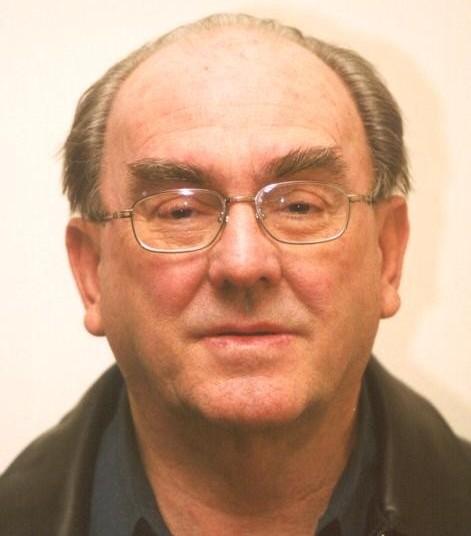Daniel Comboni
Comboni Missionaries
Institutional area
Other links
Newsletter
In Pace Christi
Jansen William Jacob
Fr. William (Bill) Jacob Jansen was born in Cincinnati’s West side on November 17, 1938, the first of three children. He attended St. Dominic Parish School in Cincinnati and, following a visit from a Comboni Missionary, he joined Sacred Heart Seminary for high school. His novitiate and college studies brought him to Monroe, Michigan, where he made his first profession in 1959 and then to Cincinnati, Ohio and San Diego, Cal. In 1962, having received his BA degree from the University of San Diego, the young professed was sent to study theology in Italy, but had to return to the USA for reasons of health in 1965. He was ordained a missionary priest in Cincinnati on May 28, 1966.
After ordination Fr. William had the opportunity to attend journalism courses at the Jesuit run University of Detroit, while teaching English literature to our students in Monroe. Soon, however, his editorial skills were put to good use in the production of what was then called Frontier Call, the mission magazine of the then Verona Fathers. The name of the publication was eventually changed to Verona Fathers Missions while the magazine acquired an increasing degree of popularity.
Meanwhile, Fr. William’s quiet and friendly manner, his missionary zeal and his sense of humour helped many local Catholics, predominantly of German and Irish extraction, to get to know the missions and the Institute. The provincial offices were at the time located in a rather dilapidated area of the city where we were ministering to the Appalachian migrants from the southern states. It was a difficult ministry because of this group’s historically hostile view of the Catholic Church.
In 1973, Fr. William was finally able to fulfil his desire to work in the mission fields and, not having been able to obtain a visa from Apartheid plagued South Africa, he was assigned to Brazil’s “nordeste,” known as the dust bowl of Brazil. While in Mantenopolis, Maranhão, he was instrumental in building, equipping and staffing a hospital with the support of friends from the United States. Later, he moved to the vastly undeveloped territory of Rondonia where he ministered to many poor communities of recent settlers. As it turned out, many of the settlers were old acquaintances from the “Nordeste” who were escaping extreme poverty there and trying to rebuild their lives in the Amazon Basin. His missionary instinct helped him in creating and supporting Small Christian Communities in the area.
In 1978, Fr. William returned to the United States, first as director of the Comboni publications in Cincinnati and then as pastor of Holy Cross in South Side Los Angeles. There, he applied his organizational skills in providing support from various foundations for the plight of the immigrant Hispanic population in the area.
The year 1991 finds Fr. William in Guatemala pioneering pastoral and social work in a large area of Mixco, a satellite city of the country’s capital. The prevailing climate of violence, prejudicial misconceptions about a North American’s presence, lack of means and of understanding stood in the way. Yet, he succeeded in coordinating five different Catholic communities and turning them into a thriving parish. Out of that effort was opened the Comboni Clinic, still very much in existence today, thanks to the dedication of Sr. Sarah Mulligan, SC, of Cincinnati, whom Fr. William “discovered” soon after his arrival in Guatemala.
Having returned to Cincinnati in 1998 and after a short sabbatical, Fr. William plunged into the struggling Hispanic ministry of the Archdiocese which had been pioneered by the local Franciscan community. As archdiocesan director of Hispanic ministry, on the strength of his previous missionary experience in Los Angeles, in Brazil and in Guatemala, Fr. William unleashed his superior organizational skills by organizing the pastoral and social structures of the church of San Carlos. He forcefully and wisely tapped into local resources and established ties with the Hispanic Chamber of Commerce. Both pastorally and in the social field Fr. William was an enabler: he would discover people’s talents and skills and give them space to put them to work for the common good.
About twenty years ago, to strengthen the fabric of the growing Hispanic ministry, Fr. William personally travelled to Mexico and returned to Cincinnati with two Mexican Comboni Lay Missionaries. In due time, they developed from nothing one of the largest Hispanic pastoral communities in the archdiocese. One of them, Ms. Dina Bello, is now employed by the curia as director of catechetic for the Hispanic ministry.
The social outreach promoted by Fr. William and called “Su Casa” has developed exponentially over the years and is now part of the archdiocesan structure. For his part in creating this means of “reaching out to the peripheries,” in 2010 Fr. William was awarded the prestigious Cesar Chavez Award.
Fr. William experienced health problems from an early age, but he never let them have the best of him. His health, however, deteriorated over the last few years, especially after he had to undergo open heart surgery. He died peacefully on March 7, 2016. The bilingual funeral Mass, held at San Carlos on the evening of March 10 was a fitting tribute to a life spent in the service of the poor and of defenceless immigrants.
(Fr. Joseph Bragotti, mccj).
Da Mccj Bulletin n. 270 suppl. In Memoriam, gennaio 2017, pp. 38-42.

